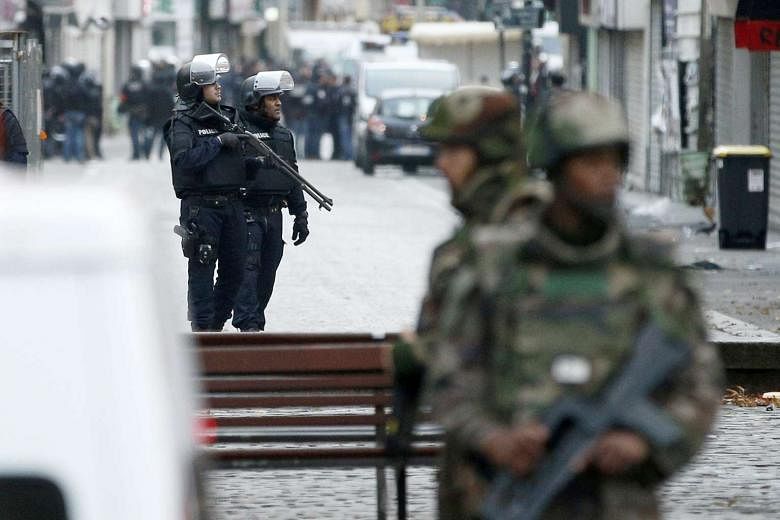BRUSSELS (Reuters) - The European Commission, the EU's executive arm, will expand its anti-terrorist legislation early next year to target fighters like those involved in the Paris attacks that killed 129 people last week.
The new measures will widen the range of actions punishable under the legislation to include travelling for the purpose of carrying out a terrorist act, facilitating travel or receiving training to carry out an attack.
In a direct response to the Paris killings, EU citizens who travel outside the bloc and then return to carry out attacks will be considered as foreign fighters, and those helping their movement will also face prosecution.
The bloc's Migration, Home Affairs and Citizenship Commissioner, Dimitris Avramopoulos, told a news conference on Wednesday that the Commission would have proposals ready by the end of November and wants to see them enacted "within the first two months of the next year."
"This will harmonise criminalisation of offences linked to terrorist travel, passive training, financing and facilitation of such travel to address the phenomenon of foreign fighters,"Avramopoulos said.
The move comes after law enforcement bodies said that attacks in Paris were linked to a militant cell in Belgium that was in contact with Islamic State in Syria.
The EU-wide legislation is meant to serve as a basis for member states' national laws, including by defining the category of "foreign fighter" - a legal definition currently lacking, according to an EU spokesperson.
Under the changes, the term would cover a citizen of an EU state who has travelled outside the bloc and returns to play a role in acts of terrorism, the spokesperson said.
The suspected Paris attack mastermind, Abdelhamid Abaaoud, grew up in Brussels, but media said he moved to Syria in 2014 to join Islamic State. He has since travelled back to Europe at least once and was involved in a series of planned attacks in Belgium foiled by the police last January.
Avramopoulos added that the Commission is also looking to introduce stricter controls to rein in the financing of terrorism.
Earlier this week, an EU source said that the Commission could move on the new measures in the coming weeks.
They could include asset freezes or stricter controls of payments carried out online or via pre-paid cards.

